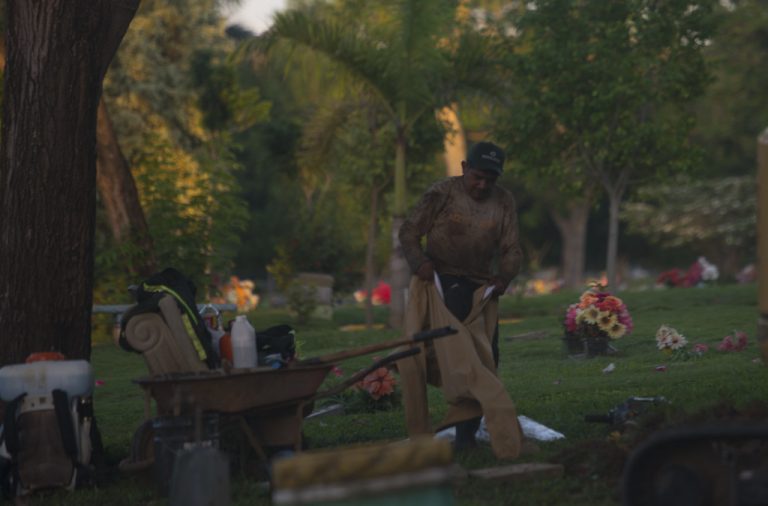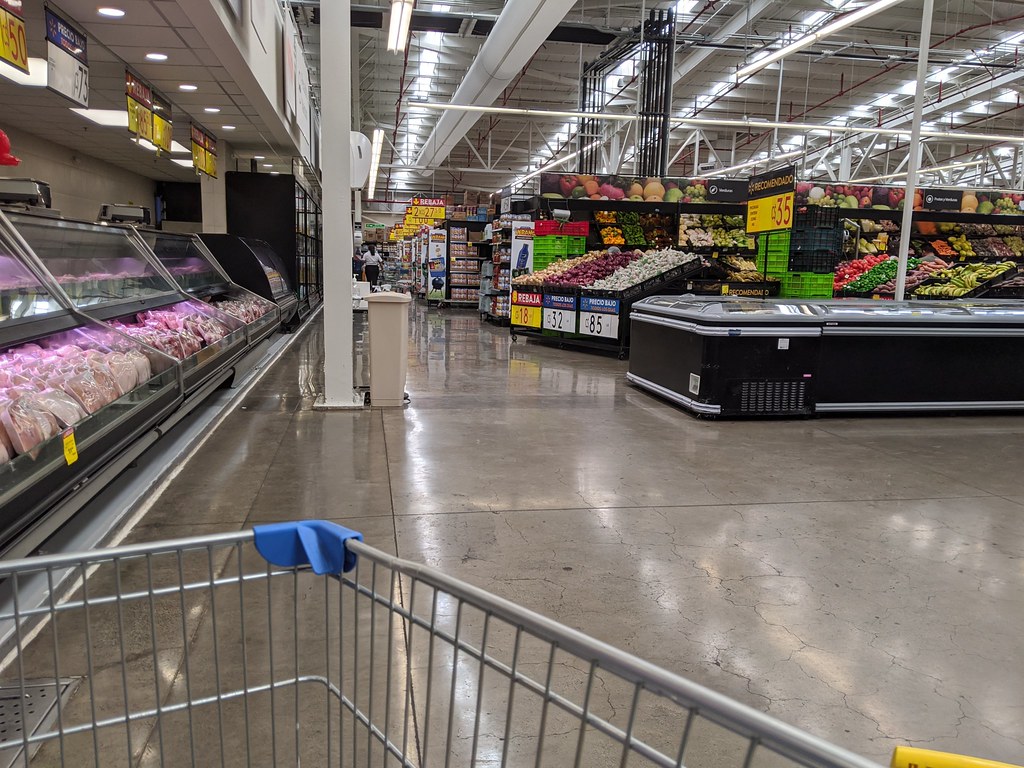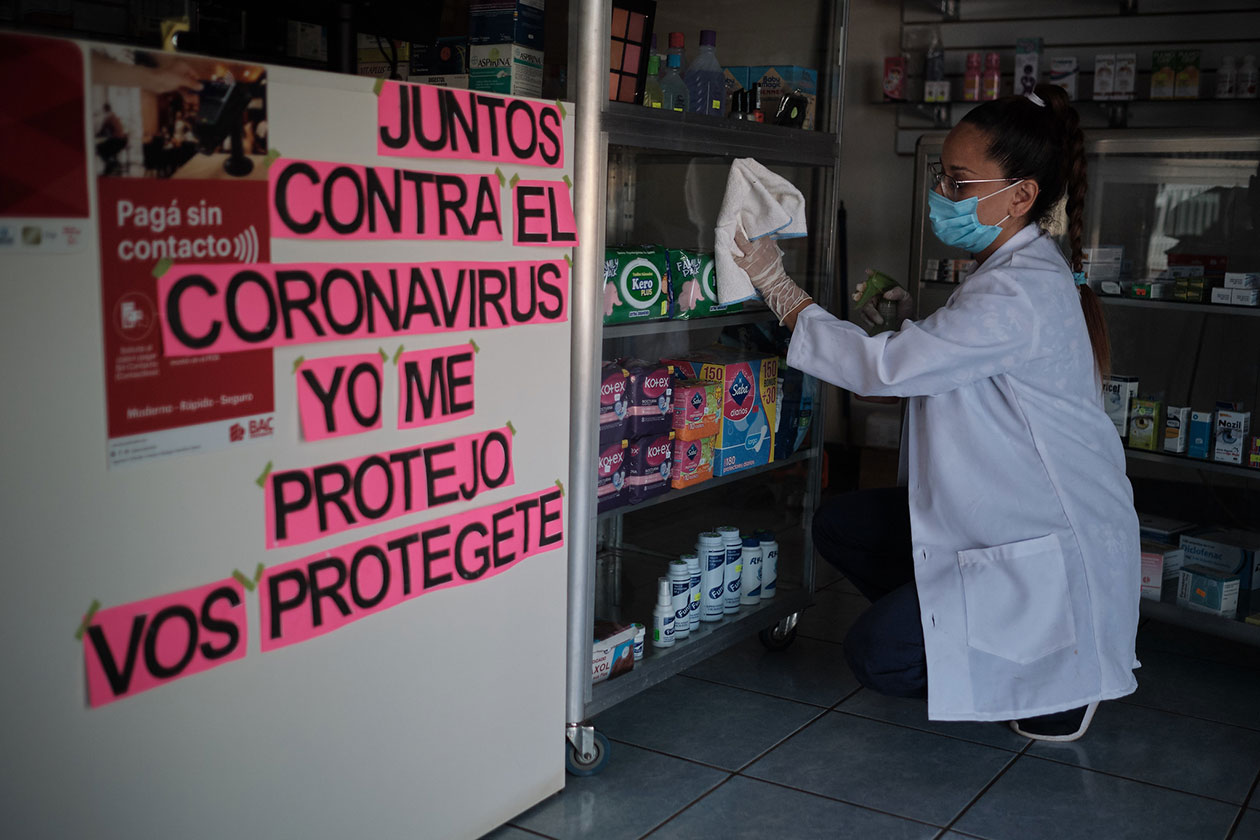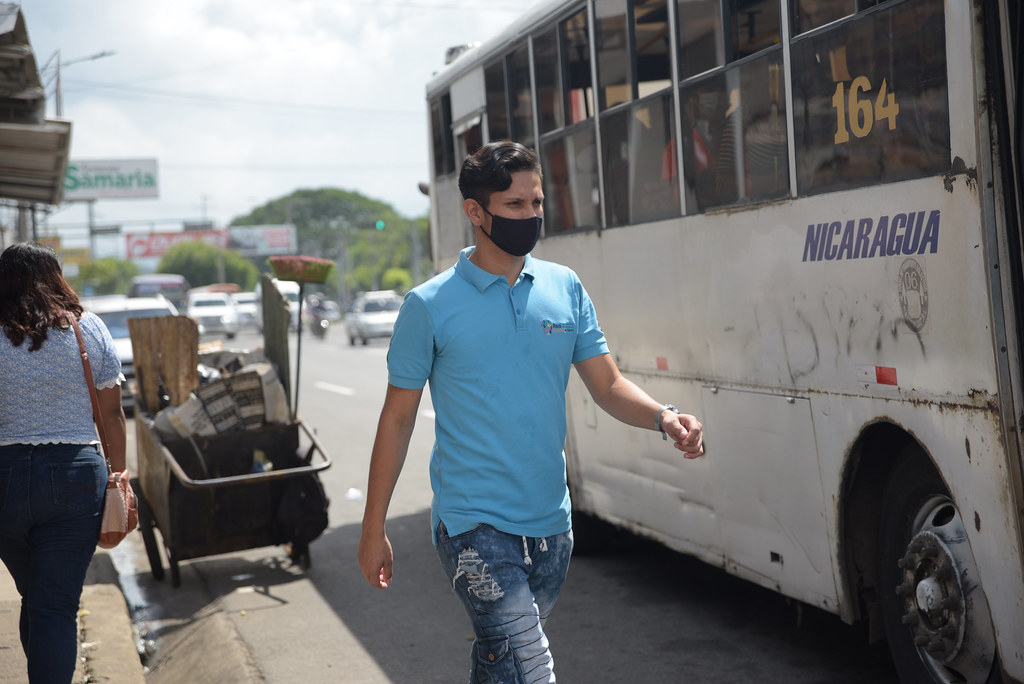2 de septiembre 2020

Ortega Grants Chinese Company a Huge Mining Concession

PUBLICIDAD 1M
PUBLICIDAD 4D
PUBLICIDAD 5D
A supermarket cashier, a gravedigger, a pharmacy manager and a bus driver tell why they can’t stay home

The pandemic forced many citizens to take self-confined measures to avoid the spread of Covid-19. However, there is a wide group of service providers who, even if they want to, cannot stay at home. They are considered “essential.”
Four workers told Confidencial the importance of their jobs in times of work at home, delivery and internet. A gravedigger, a pharmacy employee, a supermarket cashier, and a bus driver in the capital.
Manuel Gomez, 26, works as a cashier in a supermarket in Managua. In his eight-hour working day, he attends around 100 to 150 people per day.
Since learning about the first case of Covid-19 in Nicaragua, I’m afraid of getting infected and infecting my family. But I have to work. My wife and daughter depend on my income.
Before the pandemic, I had a staggered schedule. I worked four hours in the morning, resting another five, and returning at night. Now I do my eight hours at once. In my job they reinforced the protection measures. They take our temperature before entering and send us to wash our hands. Now, a work vehicle picks me up and drops me off at home.
They want to keep the staff protected, although so far three colleagues were on sick leave, presumably with the illness. In the hospital where they were treated, they didn’t confirm to any of them if they had the virus. But they say that they felt very bad and had all the symptoms of Covid-19.
Some say children are hardly affected by the coronavirus, but I feel they are the most vulnerable in my home. I have my little girl and two nieces. For them on my days off I try not to go out to avoid any contagion.

In the supermarkets of the capital, the use of masks and physical distancing are mandatory, as basic measures to prevent the spread of coronavirus. // Photo: Archive / Carlos Herrera.
Jorge Obando has been a gravedigger in a public cemetery for 20 years. Before he never worked late at night and the early morning, as he has done for Covid-19. In the first two months of the pandemic, he worked from Monday to Sunday.
Before the pandemic, I spent days without digging a single grave. I had to commit myself to cleaning tombs or waiting for a relative to arrive to ask for prices. But when the dead began to appear (due to the pandemic), I didn’t stop working, we needed more workers. Several times I brought my son-in-law to help me.
We did not always have the help of a backhoe, since it is a public cemetery. We almost always did everything with a pickax and shovel. Several times I got home with wounds on my hands.
I am afraid of catching the virus because my wife and I are diabetics. However, I don’t always use the mask because it is difficult to dig, under the sun, with it on. I have not gotten sick from any respiratory problem, although several colleagues got sick. I don’t know if it was Covid, but they disappeared for fifteen days or a month.
I cannot stay at home. I must support four more people: my wife, two daughters and two of my grandchildren. If I don’t work, we don’t eat. Although I’m afraid of getting sick from the virus, it is worse to starve. When you are poor, fear cannot defeat you.

In pharmacies, staff are often exposed to Covid-19 infection. Photo: Archive / Carlos Herrera
Arlen Alfaro works in a pharmacy in a city on the Caribbean Coast. He’s had the job for over two years. In the city, the highest percentage of infections were in medical and customer service personnel. Even with this scenario, she didn’t stop working at any time.
I work eight hours a day from Monday to Saturday. I’m in contact with around 50 people daily. I cannot stay at home because my work is essential in these times. People need to buy their medicines. That’s why the pharmacy doesn’t close. If I miss work, I’ll get fired.
When I learned about the first case of Covid-19, I was filled with fear; I immediately thought of my family. My fear increased by mid-May, when many people with symptoms of the virus came in looking for medicines.
In my daily routine I take stricter hygiene measures. Every time I enter my house, work or a business, I wash my hands. Likewise, I use a mask when I go out to the street. I change clothes when I get home. At work I use gel alcohol and after attending a certain number of clients I wash my hands. Above all I am very careful of not touching my face with my hands. Even with all these measures, a co-worker got infected with Covid-19.

Buses in Managua have established the mandatory use of masks for passengers. Some drivers have also installed acrylic cabs. Photo: Mayira Valenzuela
Oscar Molina has been driving one of the 27 buses on Route 106 in Managua for 20 years. Twelve people depend on his income: his wife, seven children and four grandchildren. He is 63 years old.
When the first case of coronavirus occurred, I wasn’t scared. In our cooperative they went into shock. The buses were frequently disinfected, they demand we wear masks all the time, and carry gel alcohol. We wash our hands in both terminals. It is forbidden to let people without masks get on the bus.
My workday lasts 12 hours. Now the last bus leaves the terminal at 6 p.m., since people hardly use the buses. People are taking their precautions, they are not going out on the streets. Before, on good days, about 1,500 passengers would get on my bus. Now, I cannot make an estimate, but the bus is almost always empty. People work from home.
We cannot stay at home because we must survive from our work. We will not get killed by the coronavirus and we will be killed by hunger. We have to work. We transport nurses, firemen, doctors, bankers, those who sell food. Those who care for the sick also depend on our work.
PUBLICIDAD 3M
Confidencial es un diario digital nicaragüense, de formato multimedia, fundado por Carlos F. Chamorro en junio de 1996.
PUBLICIDAD 3D